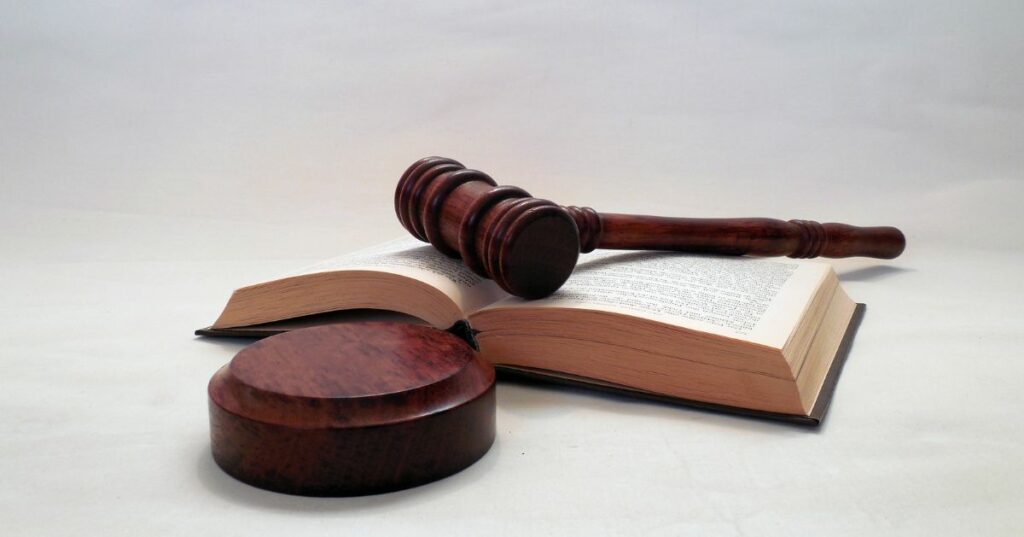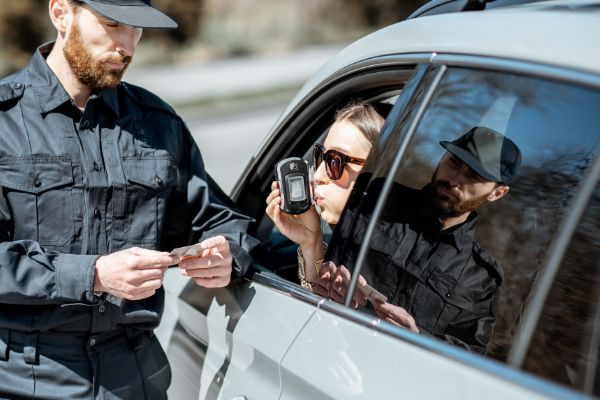4 Ways to Fight a Field Sobriety Test in a DUI Charge

DUI cases can be stressful and challenging for all involved. The possibility of higher insurance rates, loss of coverage, loss of driver’s license, and felony charges are intimidating to many drivers – it impacts every aspect of one’s life.
As you review your case, you may be wondering, how will your field sobriety test play into your final DUI charge? Can you fight the results of a field sobriety test in Maryland?
Your Baltimore DUI defense attorney can help break down how your field sobriety test may or may not be used against you during your court determination. In some cases, it can serve as a valuable DUI defense paired with other evidence and expert witnesses.
Dive into how your DUI defense attorney can challenge your field sobriety test results to help you walk away with a lesser traffic violation charge. With the right defense team, any outcome is possible. Fight for your rights today and know how a field sobriety test can be used in court.
Understanding Field Sobriety Tests in Maryland
Field sobriety tests serve as a way for law enforcement to gauge your physical and cognitive impairment due to alcohol or drugs when driving. These tests typically include the Horizontal Gaze Nystagmus (HGN), Walk and Turn (WAT), and One-Leg Stand (OLS) tests. You may be asked to perform these tests after a routine traffic stop or during a DUI checkpoint. It is important to know your rights if you refuse a DUI test in Maryland.
What are the Field Sobriety Tests
The Horizontal Gaze Nystagmus test involves observing the driver’s eye movements as they follow an object, such as a pen or flashlight, moved horizontally. Nystagmus, an involuntary jerking of the eyes, becomes more pronounced under the influence of alcohol or drugs and is what the officer will be looking for.
During the Walk and Turn test, the driver is instructed to take a certain number of steps along a straight line, heel to toe, then turn and return in the same manner. Officers assess the driver’s ability to maintain balance, follow instructions, and execute the task accurately.
In the One-Leg Stand test, the driver is asked to stand on one leg while keeping the other foot elevated for a specified duration. This test evaluates the driver’s ability to balance and focus, with impairment potentially leading to swaying or putting the foot down early or often while trying to balance.

4 Ways to Challenge Field Sobriety Test Results in a DUI Charge
If you’ve been charged with a DUI due to the results of your field sobriety test, you may have an easy DUI defense case. There is a lot that goes into the subjective nature of a field sobriety test, and if you don’t additionally have a breathalyzer or blood test, your lawyer can easily work with you to dispute the field sobriety test results.
DUI Defense #1: Environmental Factors
Despite their widespread use, field sobriety tests are not infallible. Various factors, including environmental conditions, physical limitations, and officer subjectivity, can impact test results. Adverse weather, uneven terrain, or medical conditions may affect a driver’s performance, leading to inaccurate conclusions and serving as a valuable DUI defense in DUI cases.
Your lawyer may argue the condition of the weather, road, or other factors hindered your ability to perform the test accurately – not due to the presence of drugs or alcohol.
DUI Defense #2: Officer Experience and Subjectivity
Given the potential for inaccuracies in field sobriety tests, DUI defense attorneys often challenge field sobriety test results in court. Strategies from your lawyer may include questioning the officer’s training, the use of proper testing protocols, highlighting environmental factors that could have influenced the driver’s performance, or presenting evidence of medical conditions that may have affected the outcome.
Not all officers are equally trained or experienced in reading or administrating field sobriety tests. If they don’t account for environmental factors, this can lead to their conclusion being faulty and this is a DUI defense standpoint your lawyer may take.
DUI Defense #3: Expert Witnesses
Expert witnesses can also provide invaluable testimony. Professionals specializing in fields such as forensic science or human physiology offer expert analysis and interpretation of test results, shedding light on potential inaccuracies or misinterpretations that can be used in your DUI defense.
DUI Defense #4: Strong Defensive Arguments on Accuracy
Supplementing expert testimony, scientific evidence can further add to the defense’s arguments. Studies and research findings may challenge the reliability and validity of field sobriety tests, emphasizing the subjective nature of these assessments. Your lawyer will use their time to read up and gather evidence that argues against the credibility of field sobriety tests to present in court during your case.

Get a Consult on Strategic Defense in DUI Cases
Field sobriety tests play a central role in determining impairment behind the wheel. However, their reliability and accuracy are subjective, with various factors influencing test outcomes. By leveraging expert testimony, scientific evidence, and strategic legal arguments, defendants can provide a defense against FST results, maximizing their chances of a favorable outcome in court.
If you’re worried about your field sobriety test in Maryland, contact Saller Law DUI Defense Attorneys to start planning your defense today.
Field Sobriety Defense FAQ
Field sobriety tests are a series of physical and cognitive tasks administered by law enforcement officers to determine if a driver is impaired by alcohol or drugs. You may be asked to perform these tests alongside your car during a routine traffic stop or DUI checkpoint.
No, field sobriety tests are not mandatory in Maryland. You have the right to refuse to perform these tests without facing additional penalties, although refusal may lead to other consequences, such as arrest.
Field sobriety tests have been criticized for their subjectivity and lack of accuracy. Factors such as weather conditions, physical disabilities, and nervousness can affect test performance. This is often a legal defense DUI lawyers use to protect their clients and their rights.
You have the right to refuse field sobriety tests. Politely decline to perform them and request to speak with an attorney as soon as possible.
Refusing field sobriety tests in Maryland may result in arrest, but it cannot be used as evidence of guilt in court. However, refusal may lead to the suspension of your driver’s license under the state’s implied consent laws.
Yes, you can challenge the results of field sobriety tests in court. Your attorney can question the validity of the tests and argue that other factors could have influenced your performance. Always be as up front as possible with your attorney about the condition of the tests, how you performed, and what could have impacted your performance.

Sorry, the comment form is closed at this time.